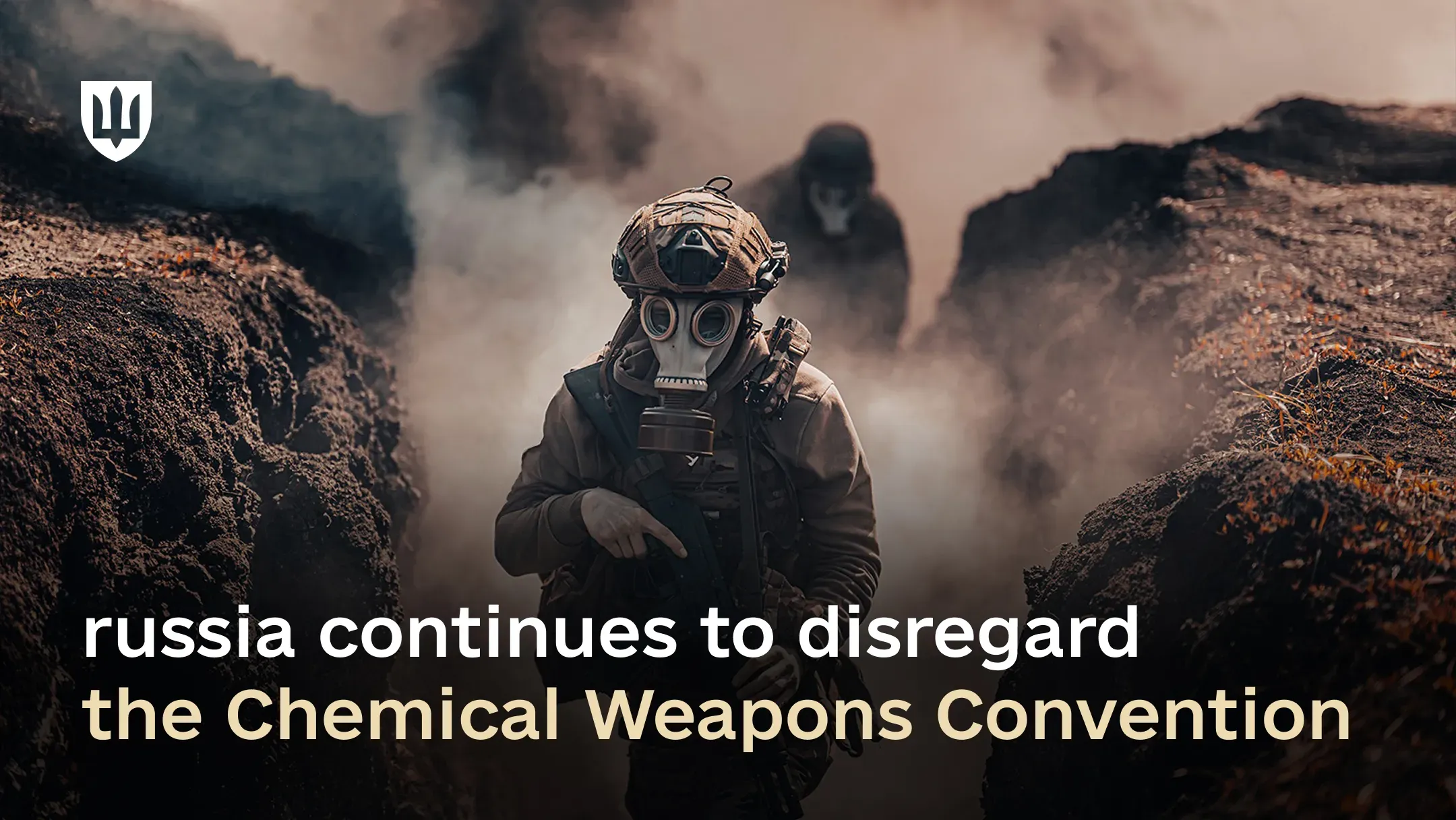767 chemical attacks in March: russia continues to disregard the Chemical Weapons Convention

Despite declaring complete destruction of its chemical weapons, the aggressor country retains industrial capacity for their restoration and production.
This was highlighted by Colonel Valerii Veber, Deputy Head of the Main Directorate of Mine Action, Civil Protection, and Environmental Safety, during panel discussions at a seminar on the criminalization of chemical, biological, radiological, and nuclear (CBRN) crimes. The seminar was held in Chișinău, Moldova.
The Ministry of Defence representative also reminded participants that, according to the General Staff of the Armed Forces of Ukraine, CBRN reconnaissance units of the Support Forces recorded 767 cases of the aggressor using munitions containing hazardous substances in March 2025 alone.
“Since February 2023, the use of hazardous chemical agents by russian forces has become systematic, in disregard of the norms and obligations of the Convention on the Prohibition of the Development, Production, Stockpiling and Use of Chemical Weapons and on their Destruction. In total, 7,730 such crimes have been documented since then,” emphasized Valerii Veber.
Seminar participants focused particular attention on international and national legal norms concerning accountability for offenses related to CBRN crimes.
At the seminar, the Ukrainian delegation emphasized that investigating and prosecuting russian war criminals remains a key priority for Ukraine’s judiciary and law enforcement agencies.
The event, funded by the European Commission’s Service for Foreign Policy Instruments (FPI), was attended by representatives from the Office of the Prosecutor General, the Ministry of Foreign Affairs, the State Environmental Inspectorate, the State Border Guard Service, the State Emergency Service, the National Police, the National Guard, the State Nuclear Regulatory Inspectorate of Ukraine, and other central executive bodies and institutions of Ukraine.
The sessions were conducted by experts from the United Nations Interregional Crime and Justice Research Institute (UNICRI), the Organisation for the Prohibition of Chemical Weapons (OPCW), the International Atomic Energy Agency (IAEA), the United Nations Office on Drugs and Crime (UNODC), the Biological Weapons Convention (BWC) Implementation Support Unit, the International Association of Prosecutors, and the independent research organization VERTIC.